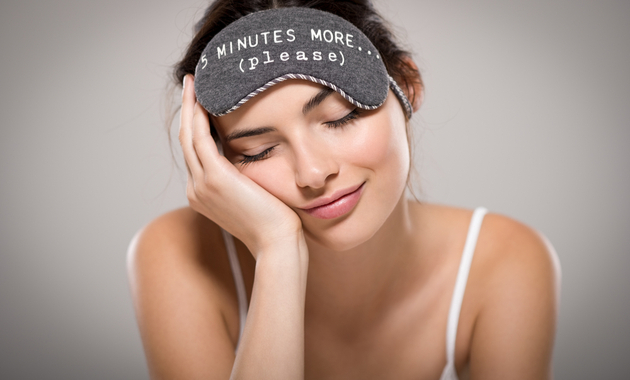
Do you feel drowsy after having your lunch at the office?
Do you doze off during meetings only to be woken up by your colleagues?
Are you the one who always thinks of hitting the sack?
If yes, you could be suffering from what is known as excessive sleep or excessive daytime sleep. Most people do feel sleepy, especially after lunch or early afternoon. But this desire to take a quick nap is completely different from the one that makes you snooze most often than not during the day. Excessive sleepiness can make you feel very tired and also interfere with your performance at school and work. Moreover, it can also affect your day-to-day functioning and may even lead to accidents while driving. Chronic excessive sleepiness is associated with reduced psychological and social well-being, increased irritability, negatively affected interpersonal and marital relationships, and reduced quality of life[1].
Causes Of Excessive Sleep
Clinically termed as hypersomnia, excessive daytime sleep or sleepiness, affects 4% to 6% of the population all over the world[2]. Sleepiness is caused by abnormal sleep quantity or sleep quality. The risk factors for excessive sleepiness include obesity, depression, extremes of age and insufficient sleep. The key to deal with excessive sleepiness is to know its cause and act on it. Here are a few common causes of excessive sleepiness you need to know about!
1. Obstructive Sleep Apnea (OSA)
OSA is one of the most common causes of excessive sleep that affects up to 4% of middle-aged male adults[2]. Sleep apnoea results from total or partial cessation of breathing (between 10 s to 1 min) which is due to relaxation of the tissue in the back of the throat blocking the respiratory tract and affecting the breathing when you are asleep. As a result, you may tend to arouse which in turn causes fragmented sleep and excessive daytime sleepiness. Patients are rarely aware of night-time disturbance other than snoring but may complain of excessive sleepiness during the daytime or falling asleep involuntarily during the day.
Headaches and fatigue in the morning, nocturnal polyuria (excessive urination at night time) and sexual problems (from reduced libido to impotence) are commonly seen in people suffering from sleep apnea. There are several factors that increase the risk of sleep apnea which includes high BMI and neck circumference, increased age, and excessive drinking.
2. Restless Leg Syndrome
It is another common sleep disorder that can cause excessive daytime sleepiness. It is a condition that is characterized by an urge to move the limbs. It is usually associated with uncomfortable or unpleasant sensations in the legs, which usually worsen in the evening or at night. The symptoms which begin when a person is lying or sitting are relieved by walking or stretching the legs. This makes it difficult for a person to sleep at night leading to excessive daytime sleeping.
The condition is present in 5% to 10% of the general population and is believed to be the most common and least diagnosed sleep disorder[3]. Although the exact cause of restless leg syndrome is not known, it is believed that conditions such as iron deficiency, polyneuropathy, arthritis, and cramps can cause it.
3. Narcolepsy
Narcolepsy is a rare, chronic neurological disorder which causes an inability to regulate the normal sleep-wake cycle. It occurs in about 1 in 2000 persons and the condition needs to be reported to a sleep specialist to get the right treatment[4]. It is characterized by excessive diurnal sleepiness in which the patients may fall asleep for a few seconds to several minutes.
Narcolepsy generally begins in adolescence, but the age of the first occurrence varies enormously. The cause of narcolepsy is unknown, but it might involve an interaction between genetic and environmental factors. It is also believed to be associated with a deficiency of orexin/hypocretin, cells which facilitate wakefulness[1].
4. Depression
Excessive sleepiness commonly is seen in patients with psychiatric disorders, particularly affective disorders such as depression and also seen in patients taking antidepressants. The prevalence of hypersomnia may be as high as 10 to 20 percent in patients with major depressive disorder.
Changes in your sleep patterns are one of the most common symptoms of depression. People suffering from depression tend to sleep more or less as they used to be. If you fail to sleep well at night, there are chances that you might feel drowsy during the day time which over time can cause excessive daytime sleeping. Moreover, daytime sleepiness has been shown to correlate with increased depression tendency scores in the general population[3]. It is also found that depression and daytime sleepiness is moderately associated with heritability.
5. Certain Medications
There are certain medications which tend to make you feel drowsy. Some of the common medications which can cause excessive sleepiness as a side-effect include antidepressants, antihistamines (drugs used to treat nasal congestion and allergy), antiemetics (drugs used to treat nausea and vomiting), and antipsychotics (drugs used to treat psychiatric conditions)[3].
If you are taking any of these prescription medications and are suffering from excessive daytime sleepiness, do talk to your doctor about the same. Do not stop taking these medications without consulting your doctor nor do self-medicate.
**Consult India’s best doctors here**
(The article is reviewed by Dr. Lalit Kanodia, General Physician)
Recommended Reads:
Sleep Apnea: Why Do Men Snore More Than Women?
4 Strange Sleep Disorders You Are Unaware Of
References:
1. Schwartz JR, Roth T, Hirshkowitz M, Wright KP. Recognition and management of excessive sleepiness in the primary care setting. Prim Care Companion J Clin Psychiatry. 2009;11(5):197-204.
2. Dauvilliers Y, Buguet A. Hypersomnia. Dialogues Clin Neurosci. 2005;7(4):347-56.
3. Slater G, Steier J. Excessive daytime sleepiness in sleep disorders. J Thorac Dis. 2012 Dec;4(6):608-16.
4. Murray BJ. A Practical Approach to Excessive Daytime Sleepiness: A Focused Review. Can Respir J. 2016;2016:4215938.
5. McWhirter D, Bae C, Budur K. The assessment, diagnosis, and treatment of excessive sleepiness: practical considerations for the psychiatrist. Psychiatry (Edgmont). 2007 Sep;4(9):26-35.